Isometric hamstring exercises are for anyone who’s tired of training hard but still feels weak in the back of their legs.
You know the feeling — sore hamstrings after leg day, knees that feel unstable, or glutes doing all the work while your hamstrings stay asleep. Sound familiar?
The truth is, most people don’t know how to activate their hamstrings properly.
They move too fast, use the wrong muscles, or rely on momentum instead of real control.
That’s where isometric training changes the game: no movement, just pure tension. And it works — whether you’re on a mat at home or using a machine at the gym.
Let’s break down how to use it, why it matters, and which method is best for you.
Isometric hamstring exercises are moves where your hamstrings contract without moving. There’s no lifting, no lowering — just holding tension and keeping the muscle switched on.
Your hamstrings stay tight the entire time — and that’s where real strength starts.
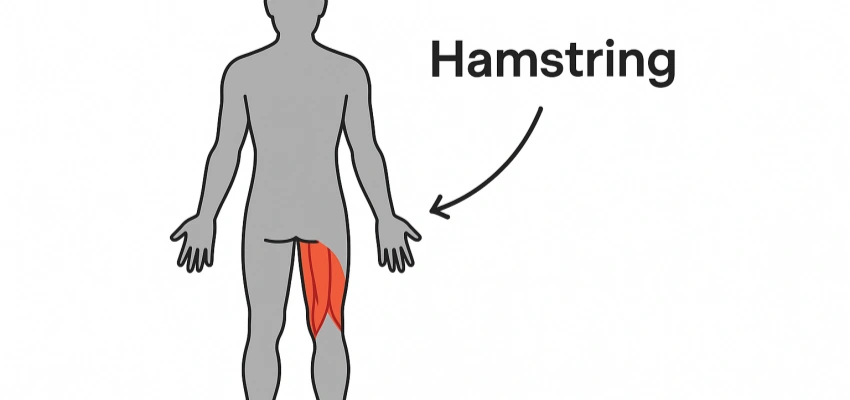
For example:
Why use them?
Because they build strength right where you need it — in the back of your legs — without putting stress on your joints. They improve control, fix imbalances, and make your hamstrings actually work, not just go along for the ride.
Isometric hamstring exercises don’t require fancy machines to be effective.
You can train your hamstrings right at home — all you need is a mat and some floor space.
Here are three simple but powerful options you can start with:
🔹 Glute Bridge Hold
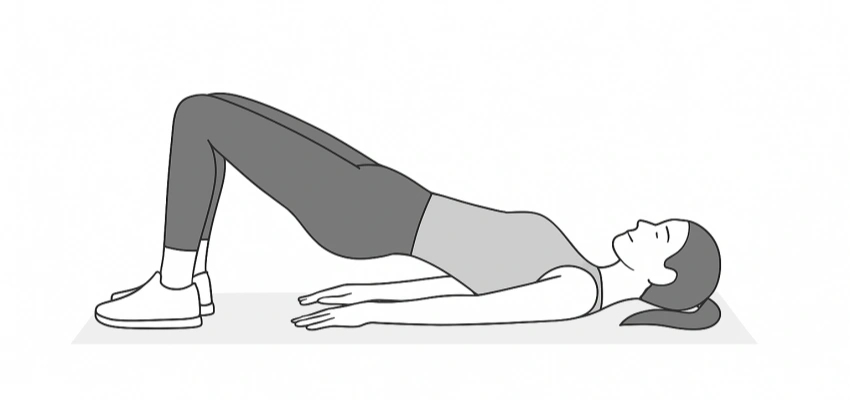
✅ Focus on squeezing your glutes and hamstrings
⏱️ Start with 15–30 seconds, 3–4 sets
💡Why it works: Builds strength in your posterior chain while protecting your lower back. Great for beginners.
🔹 Wall Hamstring Push
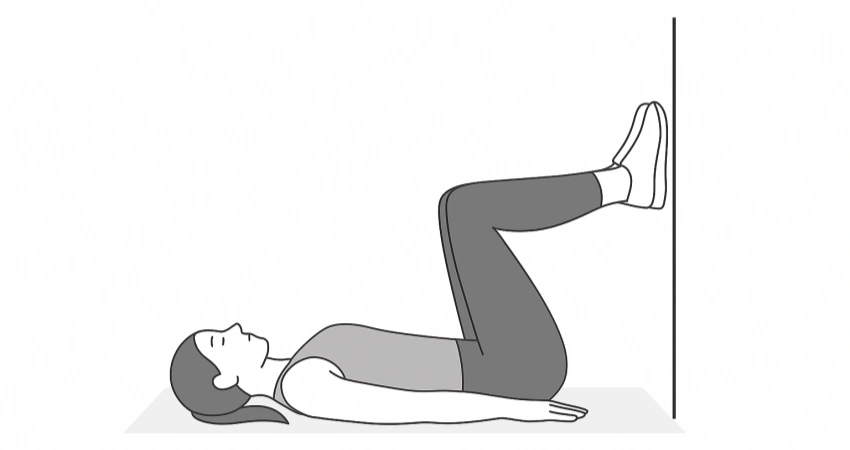
✅ Keep your core tight and push through your heels
⏱️ Hold for 20 seconds, 3 sets
💡Why it works: Creates intense tension without movement. Perfect for rehab or low-impact training.
🔹 Assisted Nordic Curl Hold
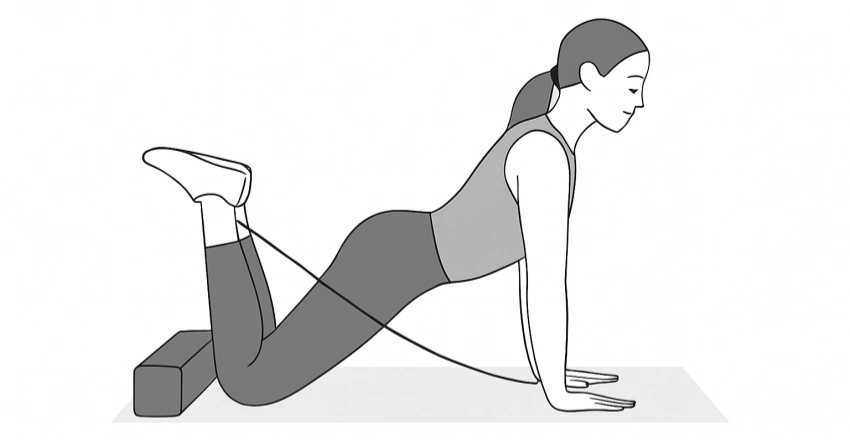
✅ Use a resistance band for support if needed
⏱️ Hold for 5–10 seconds, 2–3 sets
💡Why it works: Advanced hold that targets the deep fibers of the hamstrings. Builds control and injury resistance.
Isometric hamstring exercises become even more effective when you use the right equipment. Machines let you control angles, add resistance, and train harder — all while staying safe and locked into good form.
If you have access to the following machines, here’s how to use them for powerful isometric holds:
🔹 Glute Bridge Machine Hold
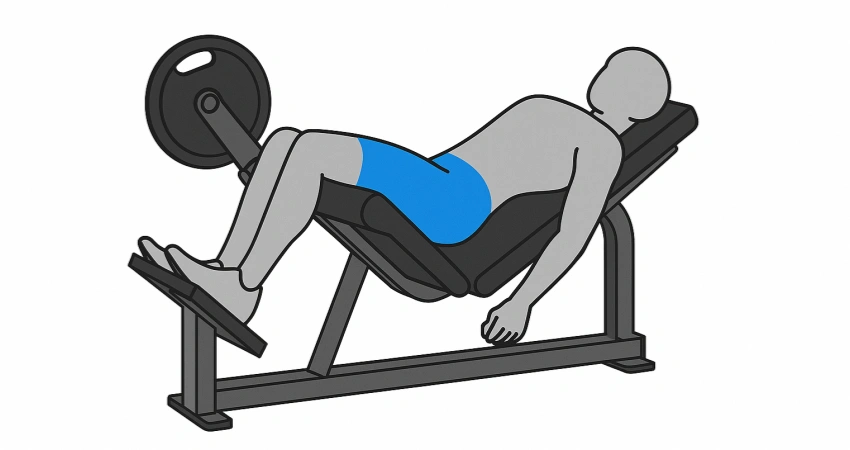
✅ Keep constant pressure through your heels
⏱️ Hold 10–20 seconds, 3–4 sets
💡Why it works: The machine adds load and support, making the hold more intense and controlled.
🔹 Multi-Function Glute Station (Kickback Hold)
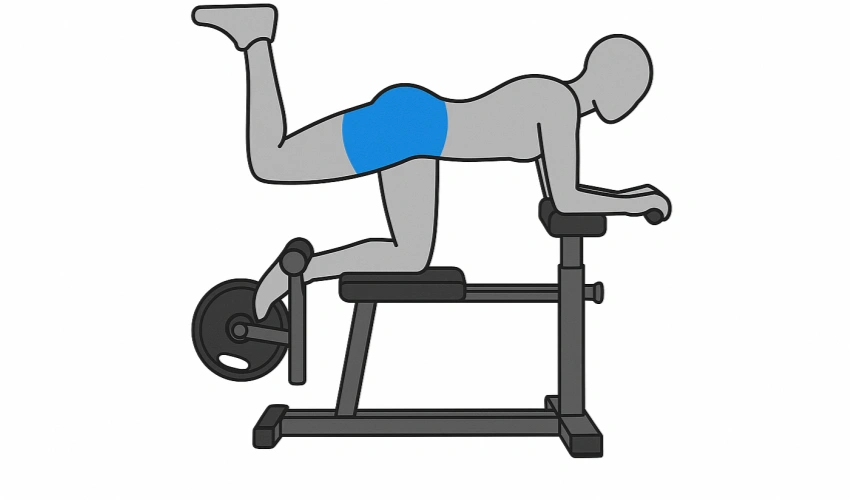
Set up in kickback position. Extend one leg back and pause at full contraction.
✅ Squeeze the glute and hamstring — no movement
⏱️ Hold 8–15 seconds per leg, 3 sets
💡Why it works: Targets the hamstring in isolation. Great for correcting side-to-side strength gaps.
🔹 Plate-Loaded Hip & Back Extension (Nordic Hold Variation)
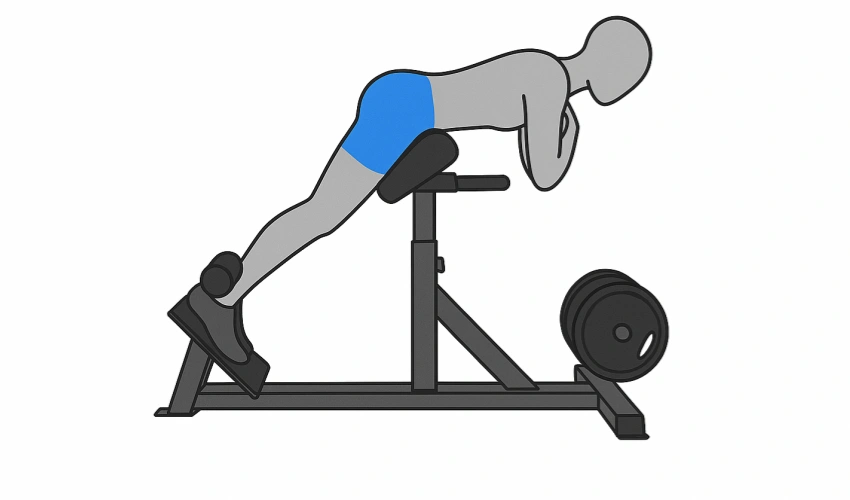
✅ Keep hips extended and core braced
⏱️ Hold 5–10 seconds, 2–3 sets
💡Why it works: High-level hold that challenges strength, control, and injury resistance — with more safety than doing it on the floor.
All the machines listed above — including the Glute Bridge Machine, Kickback Station, and Glute Ham Developer — are part of the Inpek Fitness commercial glute series, built for serious performance and real results.
Whether you’re training at home or managing a gym, these machines are designed for durability, control, and the kind of hamstring activation that actually works.
Not better — just different.
Isometric hamstring exercises help you build control, stability, and deep muscle tension without moving. Weight training builds power, range, and overall mass.
For best results? Do both. Use isometrics to activate and stabilize, then go lift.
High hamstrings (where your hamstrings connect near the glutes) are tough to target — but isometrics can help.
Try these:
Glute bridge hold — push through your heels and squeeze at the top
Kickback hold (with cable or machine) — extend fully and pause
Nordic curl hold (mid-range) — the deeper you lean, the higher the tension
Focus on squeezing at the top — that’s where high hamstrings feel it most.
Yes — big time.
Holding tension builds tendon stiffness and durability, which is key for injury prevention and performance.
That’s why physios and athletes use isometric work for rehab and prehab — it helps your muscles and your connective tissue stay strong under stress.
I’m Jessica Camp, a passionate fitness enthusiast and the creative force behind Inpek Fitness’s content. With over a decade in the fitness industry, I combine my expertise in exercise science with a deep knowledge of commercial gym equipment. I’m dedicated to promoting health and wellness by sharing valuable tips, training techniques, and the latest trends in Pin Loaded Machines, Plate Loaded Machines, Multi Function Gym Machines, Gym Multi, and Free Weights. Whether you’re a gym owner or a fitness enthusiast, my articles are crafted to inspire and empower you to reach your fitness goals. When I’m not writing, I love working out and exploring innovative fitness solutions.
Looking to enhance your gym with premium equipment? Have inquiries or ideas? Complete the form below to engage with our expert team. We’ll work with you to realize your fitness facility goals efficiently and effectively.